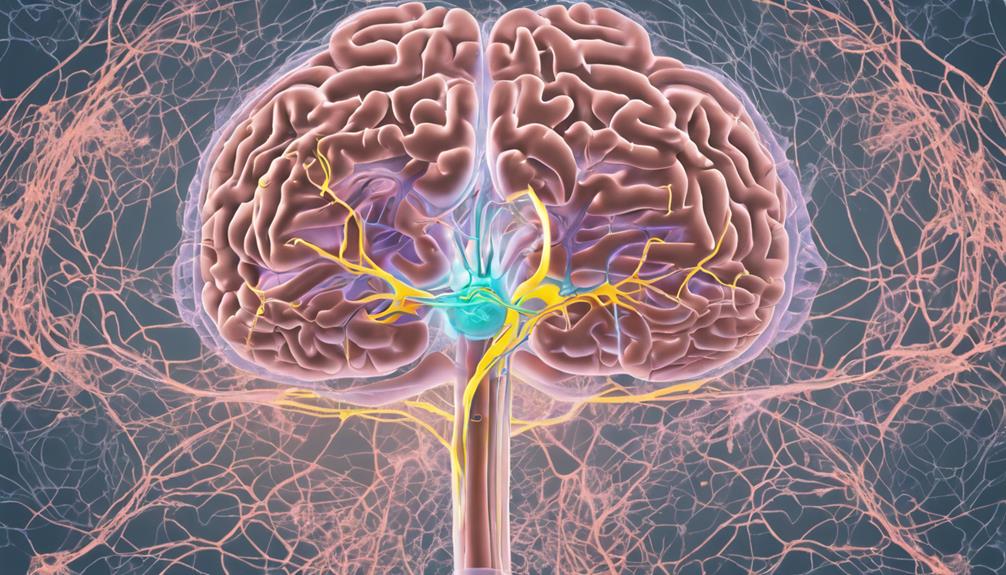Exploring theoretical perspectives on hypnotic suggestibility involves dissecting historical milestones, the influence of expectations, socio-cognitive theories, dissociation theories, state theories, and response expectancy theory. Neurobiological mechanisms also play a key role in understanding individual differences in responsiveness to hypnosis. These theoretical frameworks provide insight into the complexities of hypnotic suggestibility, encompassing historical evolution, cognitive processing, neural underpinnings, and implications for clinical practice and research. By grasping these perspectives, one can unravel the intricate dynamics that shape how individuals respond to hypnotic suggestions and further enhance their knowledge in this fascinating field.
Historical Overview

Examining the historical development of research on hypnotic suggestibility reveals a rich tapestry of theoretical perspectives and empirical investigations. The influence of Mesmerism, with its focus on the power of suggestion and altered states of consciousness, laid the foundation for early experiments in hypnosis.
Pioneering researchers like James Braid and Jean-Martin Charcot furthered the understanding of hypnotic phenomena through systematic observation and experimentation. Braid, often considered the father of hypnotherapy, introduced the term 'hypnosis' and emphasized the role of suggestion in inducing trance states. Charcot, on the other hand, focused on the neurological aspects of hypnosis, exploring its connection to hysteria and the subconscious mind.
These early experiments set the stage for the scientific study of hypnotic suggestibility, paving the way for future researchers to delve deeper into the mechanisms underlying hypnotic phenomena.
Role of Expectations
The influence of expectations on hypnotic suggestibility has been a focal point in empirical investigations, shedding light on the intricate interplay between individual beliefs and responsiveness to hypnotic suggestions.
Expectations play a significant role in shaping suggestibility levels, with studies indicating a strong correlation between an individual's belief systems and their susceptibility to hypnosis. This phenomenon can be attributed to the placebo effect, whereby the mere expectation of a response to hypnotic suggestions can lead to actual cognitive processing and behavioral changes.
Belief systems form the foundation upon which expectations are built, influencing how an individual interprets and responds to hypnotic cues. Individuals with strong beliefs in the efficacy of hypnosis are more likely to exhibit higher levels of suggestibility compared to skeptics.
Cognitive processing also plays a crucial role in mediating the relationship between expectations and hypnotic suggestibility, as the brain's response to suggestions is influenced by pre-existing beliefs and mental frameworks. Understanding the role of expectations in hypnotic suggestibility can provide valuable insights into the mechanisms underlying hypnosis and its therapeutic applications.
Socio-Cognitive Theories

Socio-cognitive theories in the realm of hypnotic suggestibility offer a framework for understanding how social and cognitive factors interact to influence an individual's responsiveness to hypnotic suggestions.
These theories propose that hypnotic responses are shaped by a combination of social influence and cognitive processing. Social influence refers to the impact of social contexts, such as the authority of the hypnotist or the expectations set by the environment, on an individual's suggestibility.
Cognitive processing involves how individuals perceive, interpret, and respond to hypnotic suggestions based on their cognitive abilities, beliefs, and past experiences.
Research in socio-cognitive theories has shown that individuals with higher levels of social suggestibility, who are more prone to social influence, tend to exhibit greater hypnotic responsiveness.
Moreover, cognitive factors, such as attentional focus and the ability to engage in imaginative processes, play a crucial role in determining the effectiveness of hypnotic suggestions.
Dissociation Theories
Within the realm of hypnotic suggestibility, Dissociation Theories offer a distinct perspective on the underlying psychological processes that contribute to an individual's responsiveness to hypnotic suggestions. Dissociation Theories propose that hypnotic suggestibility arises from a division in consciousness, leading to alterations in perception, memory, and identity.
According to this theoretical framework, individuals entering a hypnotic state experience a separation between different components of consciousness, such as a detachment from reality or a heightened focus on internal experiences. These altered states are believed to facilitate increased responsiveness to hypnotic suggestions by allowing for greater influence over unconscious processes.
Research supporting Dissociation Theories suggests that hypnotic suggestibility is associated with the capacity to dissociate, enabling individuals to engage in unconscious processes that are typically inaccessible during normal waking states. By exploring the interplay between altered states of consciousness and suggestibility, Dissociation Theories shed light on the intricate mechanisms underlying hypnotic responsiveness and highlight the role of dissociative experiences in shaping hypnotic phenomena.
State Theories

State Theories of hypnotic suggestibility posit that the responsiveness to hypnotic suggestions is influenced by the individual's specific psychological and physiological state during the hypnotic experience. Proponents of State Theories suggest that hypnotic suggestibility is linked to altered states of consciousness, where individuals may exhibit heightened focus, absorption, and suggestibility. These altered states can lead to changes in perception, cognition, and subjective experiences, making individuals more receptive to hypnotic suggestions.
Research in this area has focused on identifying the underlying psychological and physiological mechanisms that contribute to these altered states during hypnosis. Studies have explored brain activity patterns, neurotransmitter levels, and subjective reports of individuals undergoing hypnosis to better understand the state-dependent nature of hypnotic suggestibility.
Response Expectancy Theory
Response Expectancy Theory in the realm of hypnotic suggestibility posits that the individual's expectations and beliefs regarding the outcomes of hypnosis significantly influence their responsiveness to hypnotic suggestions. This theory emphasizes the role of cognitive processes in shaping an individual's response to hypnotic cues.
According to this perspective, an individual's attentional focus on the hypnotic suggestion, coupled with their pre-existing beliefs and expectations about hypnosis, determines the extent to which they will respond to the suggestion.
Research in this area suggests that individuals who hold strong beliefs in the efficacy of hypnosis are more likely to respond positively to hypnotic suggestions. The cognitive processes involved in processing and interpreting hypnotic cues play a crucial role in determining the individual's level of suggestibility.
Additionally, the individual's attentional focus on the hypnotic suggestions further enhances the suggestibility effect.
Neurobiological Perspectives

How do neurobiological perspectives contribute to our understanding of hypnotic suggestibility?
Research in neurobiology has shed light on the neural mechanisms underlying hypnotic suggestibility levels. Studies using neuroimaging techniques such as fMRI have shown that individuals with high hypnotic suggestibility exhibit distinct patterns of brain activity compared to those with low suggestibility levels. Specifically, regions involved in attention, perception, and cognitive control have been found to be more active in highly suggestible individuals during hypnotic inductions.
Moreover, neurobiological research suggests that hypnotic suggestibility may be linked to the functioning of the frontal lobes, which are crucial for higher-order cognitive processes. The prefrontal cortex, in particular, plays a significant role in regulating suggestibility by modulating attention and inhibitory control. Understanding these neurobiological underpinnings can help elucidate the individual differences in hypnotic responsiveness and provide insights into how suggestions are processed at the neural level.
Frequently Asked Questions
How Can Hypnotic Suggestibility Be Measured Accurately?
Accurate measurement of hypnotic suggestibility involves utilizing research methods that ensure validity and standardization across individuals. By considering individual differences and implementing standardized protocols, researchers can effectively assess and quantify hypnotic suggestibility in a reliable manner.
Are There Any Ethical Concerns Related to Using Hypnosis?
Ethical considerations in utilizing hypnosis are paramount, aligning with professional standards. Safeguards to protect individuals' autonomy, confidentiality, and well-being must be upheld. Adherence to ethical guidelines ensures responsible and beneficial application of hypnosis.
Can Hypnotic Suggestibility Be Influenced by Cultural Factors?
Cultural influences can significantly impact hypnotic suggestibility accuracy. Research suggests that cultural beliefs, norms, and experiences can shape an individual's responsiveness to hypnotic suggestions. Understanding these factors is crucial in evaluating suggestibility across diverse populations.
Is There a Genetic Component to Hypnotic Suggestibility?
Research suggests a potential genetic predisposition to hypnotic suggestibility based on family studies. Understanding the heritability of this trait can provide valuable insights into the interplay between genetics and suggestibility, contributing to the field's empirical knowledge.
What Are the Long-Term Effects of Repeated Hypnosis Sessions?
Repeated hypnosis sessions can lead to significant cognitive changes and alterations in behavioral patterns over the long term. Research suggests that these effects may include improved focus, reduced anxiety, and enhanced self-regulation skills.
Conclusion
In conclusion, the theoretical perspectives on hypnotic suggestibility offer valuable insights into the underlying mechanisms and factors influencing individuals' responsiveness to hypnotic suggestions.
By examining historical developments, expectations, socio-cognitive theories, dissociation theories, state theories, response expectancy theory, and neurobiological perspectives, researchers can gain a comprehensive understanding of the complex nature of hypnotic suggestibility.
Further research in this area is crucial for advancing our knowledge and enhancing clinical applications of hypnosis.


